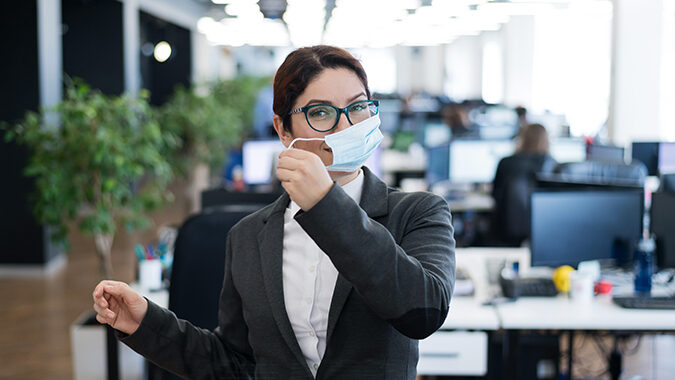Officials from the governor’s office characterize reopening as a success from the perspective of preventing the spread of COVID-19, though they emphasize that more work needs to be done. From NJBIA’s point of view, however, the pace of reopening, given the fact that our numbers continue to trend in the right direction, is threatening the survival of a growing number of New Jersey businesses.
Such is the dilemma of policymakers in the age of coronavirus.
The debate on whether New Jersey is reopening fast enough played out during a virtual meeting this morning of NJBIA’s Government Affairs Policy Committee, with about 75 NJBIA member companies hearing from and asking questions of Joseph Kelley, deputy chief of staff for Economic Growth, and Candice Alfonso, senior economic development project manager for Gov. Phil Murphy.
Kelley acknowledged that New Jersey’s Stage 2 reopening is in a bit of a pause, but said he is cautiously optimistic that the hybrid of indoor and outdoor activity that’s been approved will allow businesses to keep their doors open without New Jersey experiencing the surge of infections happening in so many other states.
New Jersey businesses are resilient and nimble and able to reinvent themselves and figure out new ways to be profitable and manage the crisis in a way that keeps people safe, Kelley said.
NJBIA President and CEO Michele Siekerka suggested it was unfair to compare New Jersey businesses to many other states, particularly the ones that snubbed their noses at the virus threat early on. Rather, New Jersey businesses are largely following the rules and being accountable and responsible in a way that justifies moving forward with reopening rather than pausing.
NJBIA has consistently said that any time a business can meet all of the specific standards the administration has said are necessary for a safe reopening, they should be permitted to reopen.
She also said that government wasn’t the only consideration; businesses have to convince their customers and clients, as well as their own employees, that their place of business is safe.
“Those other states that had bad impacts on indoor dining, gyms, all those things that continue to remain closed because they went in without safeguards,” Siekerka said. “This business community takes very seriously the health and welfare of their workforce, their clients, patrons, vendors, and anyone who frequents their facilities.
“As we’ve said from the beginning, when a business can check those boxes, they should be given the opportunity to open their doors, and it’s incumbent upon them to build consumer confidence,” she said.



